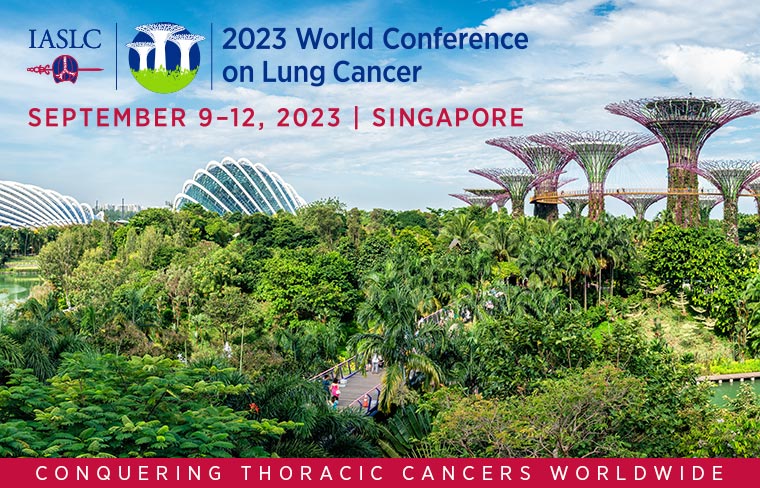
Three highly regarded thoracic oncologists were named co-chairs of the IASLC 2023 World Conference on Lung Cancer, which will take place September 9-12 in Singapore. Co-chairs work with IASLC to plan the annual research meeting, select program track members and meeting content, and serve as ambassadors for international oncologists who attend the meeting.
Pyng Lee, MD, is an associate professor and director of Interventional Pulmonology for Yong Loo Lin School of Medicine at National University of Singapore. Dr. Lee represents Singapore as global governor for the American College of Chest Physicians and is invited locally to speak and instruct in pleuroscopy, bronchoscopy, bronchial thermoplasty and lung cancer. Dr. Lee was the Program Chair of the “Diagnostics and Interventional Pulmonology Track” for WCLC 2020. She has served on several other IASLC programs and committees.
Chee Lee, MD, is a medical oncologist with a subspecialty in thoracic malignancies. He is a senior staff specialist in Medical Oncology and director of the Medical Oncology Clinical Research Unit at St. George Hospital. He is also the clinical lead of the Thoracic Malignancy Program at the National Health & Medical Research Council Clinical Trials Centre of The University of Sydney. In addition, he has master’s degrees in clinical epidemiology and biostatistics. Dr. Lee is currently an associate editor of JTO Clinical Research Reports.
Dr. Fiona Hegi-Johnson, MD, is a radiation oncologist at the Peter MacCallum Cancer Centre, Senior Research Fellow at the University of Melbourne, director on the Board of the Trans-Tasman Radiation Oncology Group (TROG) and chairs the TROG Lung Subspecialty Working Party. She is the Chair of the Metastatic NSCLC Palliative Radiotherapy Track for WCLC 2023 and serves as a member of the IASLC Fellowship and Awards committee.
Dr. Hegi-Johnson is an active clinical trialist and leads a bench-to-bedside research program that develops and clinically implements novel PET tracers to image the immune system as both biomarkers of response after systemic therapy and to guide the development of personalized, biologically driven approaches to radiotherapy treatment.





